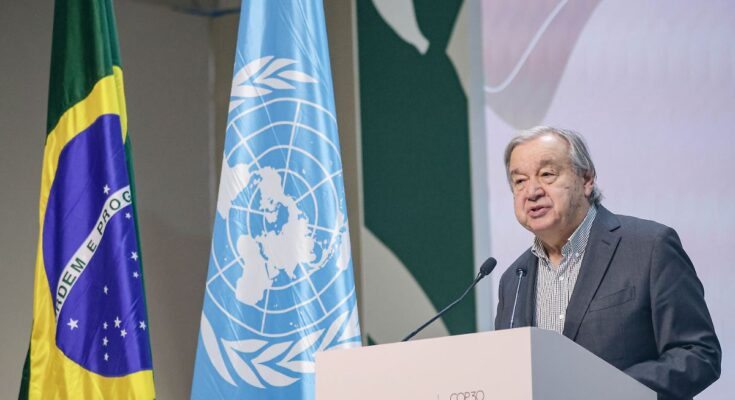The cause may be a technical defectThe climate conference in Belem is under time pressure after the fire
The fire disrupted the ongoing climate conference in Belem. Even without this warning, the summit was running out of time. The debate remains on the shift away from fossil fuels. There is no clear schedule yet and funding is still unclear.
After being interrupted due to fires, important negotiations at the COP30 world climate conference in Brazil will resume this Friday. The organizers announced this. The entire conference location in the city of Belem had previously been evacuated after a fire broke out. 13 people were treated for smoke inhalation. According to local authorities, the cause may be a technical defect.
The resumption of negotiations is taking place under considerable time pressure. Negotiators from nearly 200 participating countries have missed a deadline set for Wednesday to reach a deal. Shortly before the fire, host country Brazil submitted a new compromise proposal. However, according to the draft obtained by Reuters, the draft does not contain a roadmap for phasing out fossil fuels, which was the subject of debate at the conference. The draft also plans to double funding for climate change adaptation by 2030, but it is still unclear where that funding will come from.
Disputes over fossil fuels and money
The two weeks of negotiations have been overshadowed by disputes over the future of fossil fuels and funding for climate protection measures. Dozens of developed and developing countries are pushing for a clear exit roadmap. However, some funding countries oppose this. At last year’s summit, it was decided to move away from fossil fuels, but without concrete steps or timetable. UN Secretary General Antonio Guterres appealed to the delegation’s willingness to compromise. “I firmly believe that compromise is possible,” he said.
Another important issue is the reluctance of some rich countries to make new funding commitments for poorer countries. Distrust of developing countries has increased with the US’s withdrawal from international climate cooperation under President Donald Trump. The Environment Minister for the Pacific state of Palau, Steven Victor, underscored the urgency. “If we leave Belem without deep adaptation results for the world’s most vulnerable countries, then this is a failure,” he said.



